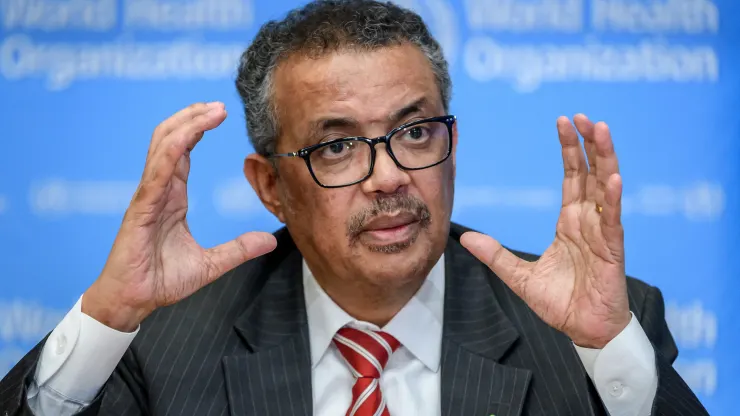The upcoming 77th World Health Assembly (WHA) in Geneva, Switzerland, is poised to be a pivotal event with significant implications for global health governance and national sovereignty.
### Event Overview
Mark your calendars, Patriots! Between May 27 and June 1, 2024, global elites and liberal world leaders will convene in Geneva for the WHO’s [77th World Health Assembly](https://www.who.int/about/accountability/governance/world-health-assembly/seventy-seventh#:~:text=The%20Seventy%2Dseventh%20World%20Health,live%20from%20this%20web%20page.). Representatives from all 194 WHO member countries are set to vote on major amendments to the International Health Regulations. These changes could potentially shift power from sovereign nations to the WHO’s global health board during a pandemic.
### Potential Changes and Implications
If these proposed amendments are approved, the WHO will gain the sole authority to define a pandemic. This development has raised concerns about national sovereignty. In recent years, various issues have been labeled as ‘existential threats to public health,’ including free speech and misinformation. The prospect of the WHO having unchecked power over such definitions is alarming for many.
### Global Vaccine Passport System
The proposed changes also include [plans](https://brownstone.org/articles/the-who-treaty-is-tied-to-a-global-digital-passport-and-id-system/) for a mandatory global vaccine passport system under WHO control. A German company, ‘T-Systems,’ has already been [contracted](https://www.telekom.com/en/media/media-information/archive/covid-19-who-commissions-t-systems-648634) to develop this technology. On July 1, 2023, the WHO adopted the EU’s digital COVID-19 certification to establish a global system aimed at protecting citizens from ongoing and future health threats, including pandemics. This initiative marks the first step towards building a Global Digital Health Certification Network for verifying health documents worldwide.
### Official Statements
The joint announcement by WHO and T-Systems [stated](https://www.telekom.com/en/media/media-information/archive/covid-19-who-commissions-t-systems-648634):
> “The World Health Organization (WHO) will simplify the process for its member states to introduce digital vaccination certificates in the future. The WHO is establishing a gateway for this purpose which will allow QR codes on electronic vaccination certificates to be verified across national borders.
>
> This method will serve as a standard procedure for other vaccinations such as polio or yellow fever after COVID-19. The WHO has chosen T-Systems as an industry partner to develop the vaccination validation services.”
### Opposition and Concerns
Despite being an international body with significant influence, the WHO has faced criticism for its handling of the COVID-19 pandemic. Tedros Adhanom Ghebreyesus, who leads the organization, has been accused of spreading misinformation and imposing restrictive measures.
### Political Response
In response to these developments, 44 Republican senators have voiced their opposition by sending a strongly worded letter to Joe Biden. They urged him to reject two forthcoming international agreements under consideration at the World Health Organization (WHO) that they believe would undermine U.S. sovereignty. Sen. Ron Johnson [tweeted on X](https://twitter.com/SenRonJohnson/status/1786128688985121169/photo/1), “Two international agreements are being considered at this month’s World Health Assembly that surrenders U.S. sovereignty to the WHO. [Biden] should reject them, or at least submit any agreement to the Senate as a treaty. The entire Senate GOP conference has signed onto my letter to Biden demanding just that.”
In their collective statement, these senators criticized the WHO’s handling of the COVID-19 pandemic, labeling it an absolute and predictable failure that inflicted significant harm on our country. They argue that comprehensive reforms within the WHO must be demanded before considering any amendments to the International Health Regulations (IHR) or engaging in new treaty negotiations that would expand the organization’s authority.
> “Next month, during the Seventy-seventh World Health Assembly (WHA), your administration is expected to commit the United States to two international agreements that would strengthen the World Health Organization’s (WHO) authority…”

